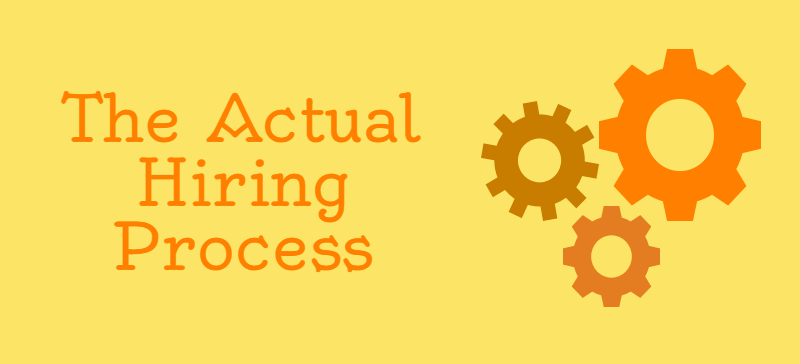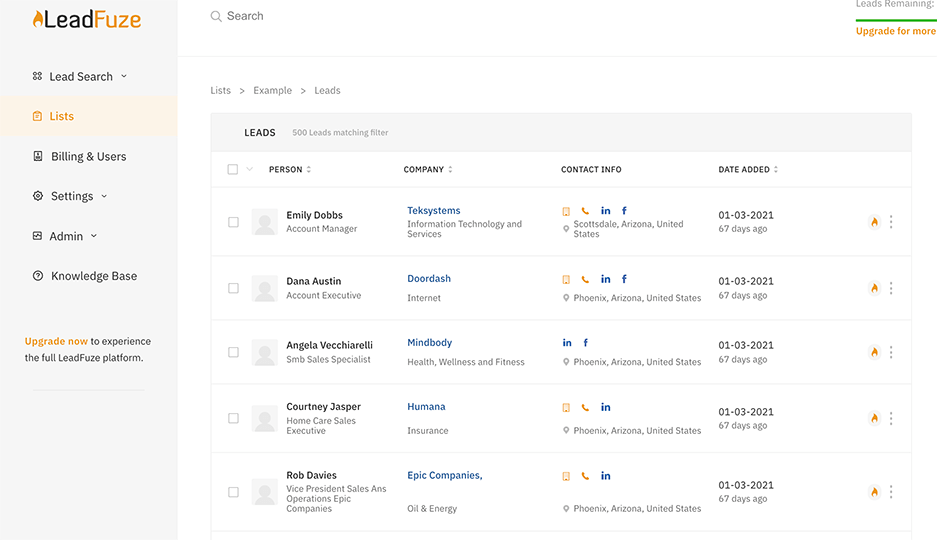Importance of Knowing When to Hire Your First Salespeople
Hiring your first salesperson is a major milestone for small business owners and startup founders. It’s exciting because, if the timing is right, that is when the business starts to truly take off.
That said, exactly when to hire that first salesperson is not a decision to take lightly. Precisely because, as a business owner, it can be hard to know what’s best for your company, especially when you have no experience running a business and you are learning as you go.
As a startup founder, you have likely been handling sales yourself. That is not a bad thing in itself. As you know the product better than everybody, you should be your company’s first salesperson.
Only after you have defined your sales funnel should you consider hiring a sales rep to take over sales. When you hire a salesperson with more experience than you, they can hit the ground running if they find a clearly defined funnel and sales process already set up.
Experienced salespeople also need to familiarize themselves with selling your product. They will need to be trained on how your product works and how best to sell its features to prospects. You can’t train them if you have not done it yourself.
Last but not least, it’s important to consider if your business can afford to hire salespeople with enough experience and expertise. You also need to have the right tools for those sales reps to produce your desired results. If not then it might be better not to hire until you have the resources.
Why startup founders struggle to decide when to hire a salesperson
Product or service works? Check.
Pitch (or demo) is solid? Absolutely.
CEO working 70 hours a week? You know it.
Building a startup can be one of the most exhilarating and fun things anyone may experience in the world. That said, it can also be depression-inducing and as stressful as the 2016 election season.
The quickest way to leave the fun and end up in stress is to hold off on the hiring process. But knowing exactly when to hire when you have been doing everything yourself is hard.
Getting to take off some of those many hats you’ve been wearing as a founder can sound good and yet be anxiety-inducing. And it’s just the control you are learning to give away. Budgets, training processes, and taxes can all take a toll.
Most of the time, first hires are either in sales or operations. Depending on which one you’re good at will determine who you’ll want to hire first.
Since we specialize in sales and lead generation, we feel strongly that a great sales rep would do you wonders. And we hope to prove it.
Below, we’ll go over a few things to help you hire your first sales development rep (SDR).
You May Need to Hire a Sales Development Rep (SDR) Instead of a Closer Sales Rep

A sales development rep is someone who deals with leads for your company. Their job is to research potential customers, create demos of the product, find out what they need in order to buy, and then make those introductions to the sales team.
SDRs are great for a company because they can work on their own, meaning you don’t need someone else managing them and giving them directions all the time. SDRs also have proven track records of success in generating leads that turn into customers, so it’s beneficial to hire one if you don’t need to hire salespeople.
But all of the “experts” say to hire VAs to do lead gen, create spreadsheets, and mow the lawn. Why would I hire a full-time employee instead?
It makes way more sense.
First, lead gen and even cold emailing can be automated.
Secondly, SDRs specialize in setting qualified appointments that are ready to close. VAs are great for taking things off your plate, but SDRs can (almost directly and immediately) add to your bottom line.
So, why not a “sales rep” or closer?
We are very specific that your first sales team member should be someone who qualifies the leads you have instead of someone who closes accounts.
You are still (presumably) a young business. That means you know the product well and can’t take too much time training someone else to close. That is a time you may not have many sales that you can’t risk losing to someone who doesn’t have the chops to sell your product.
Make no mistake, even seasoned pros can’t close your product like you can at first.
Sure, give them a month or two and they can wipe the floor with your numbers, but think of the sales lost over that period on top of a salary.
SDRs, on the other hand, can interact with leads, dole out content, and ask preset questions to listen for prospects and weed out suspects.
They can slowly begin to let you know when they think a lead is ready. And you can slowly hand over more and more of the nurturing/qualifying process until you’re comfortable.
With that foundation, let’s answer the all-important question of what to consider when hiring your first salesperson:
When to Hire A Salesperson – What to Consider

If your company is just starting out and you’re not sure what time the sales rep needs to produce results then waiting on hiring one can be best. You need to have had some experience selling your product yourself to even be sure what to put in the sales rep job description.
- What will be their duties and responsibilities?
- What skills and experience do they need to have?
Salespeople offer an important perspective because they’re the ones who are out there face-to-face with customers. Salespeople are necessary for companies that have had some success and need someone on their team who can help them grow even more.
If you do need a salesperson, then it’s important to hire someone that has the right skill set for your company and who can work well alongside other employees. It’s best to hire a salesperson with the requisite product. If you are selling a novel product, you should go with someone you know from either their previous work experience or your personal life.
There are obviously startups that have no business bringing a sales rep on board. However, if you’re asking this question it’s probably the time you should consider it.
You should hold off on hiring salespeople if you don’t have enough leads, enough cash, or a fully functional product.
There are also many organizations and bootstrappers that made the mistake of taking too long to build a sales team. Some of these should have hired a sales specialist from the first weeks their product was available.
If you’re a service-based business or you produce your products manually; having a sales rep doesn’t make sense until you can meet the demand of the number of closes you have. The software doesn’t have that problem. It’s ready all the time.
The more leads you can move delicately, yet deliberately down the funnel the better.
Even though it sounds scary and will take some budgeting (we’ll get to that in a minute), you’ll be much better off having someone to handle the pipeline while you are closing and handling the other aspects of the business.
Still, you may not feel like you’re quite ready. We’ll break it down a bit more.
Consider the three basic steps of your process. You have lead management, and acquisition, and then you have retention of clients.
-
Lead management:
This is the process you hope to offload. When you can’t handle the volume of leads that are available, it’s time to hire. SDRs send emails, make phone calls and coax leads into becoming warmer. There is a lot of work here that is relatively easy to offload over time.
-
Acquisition:
If you can’t (in a given week/month) handle both the leads and the appointments you’ve set to close, it’s time to hire. If you are staying up way too late every day to be both halves of the sales process, it’s time to make your first sales hire.
-
Retention:
Churn is indeed a four-letter word in the software world. Any business hates losing existing clients. If you are irritating your current users, you are losing referrals at best and customers at worst. Hire an SDR and get your balance.
4 Factors to Consider Before Making Room for a Team
If you are convinced that it’s time for a sales hire and that it should be an SDR, we should give you a few pointers on bringing your new teammate on board.
1 The actual hiring process

Hiring and training sales staff is one of our great passions at LeadFuze.
Healthy sales and marketing processes are the veins of a brand through which your leads flow. We have written on the subject a few times. Check these posts for further reading:
- How to Hire a Salesperson: A unique, yet thorough approach to listing your position, finding candidates and interviewing them.
- 7 Steps to Follow when Hiring Sales Development Reps: A deep dive into our brutal process. Only the best survive.
- Best Sales Blogs: The Ultimate List: Quite possibly the largest list of sales-specific blogs on the internet. A great resource for you and your new hire to keep your skills sharp.
Next, consider the specific attributes you are looking for:
2 Who to hire

A quick note here.
You probably have a lot of knowledge about the type of culture you hope to create, and that is really important. We don’t want to influence that.
But we do want you to hire someone that is fit to be employee #2. Here are a couple of things to keep in mind:
- Experience Level:
Having someone with SDR experience could help you save time, but they’ll come with baggage from their last employer. A fresh hire in the industry will be all yours, but they take longer to train. This is a judgement call you’ll have to make.
- Future Planning:
Don’t just hire a grunt. Recruit someone who can replicate themselves and potentially take over a sales team down the road. Hiring someone with leadership capabilities is crucial to growing a company.
“Hire character. Train skill.” — Peter Schutz
3 Can you afford a new sales hire

Probably the loudest objection and biggest fear founders have is the lack of funds to afford qualified staff at their startup. Yes, it is scary. But you may in fact not be able to afford to hire a sales rep.
That said, you should at least do the math:
Sample Equation: (Number of qualified appointments/month) X (Close rate %) X (Average sale)
Taking that math, let’s say you typically close 7 new users/accounts out of 30 appointments per month at an average sale of $1000 for an annual subscription. That’s $7,000/mo in new revenue.
That is enough for you and to cover expenses.
What if you could pump 2 times more leads into your funnel and the SDR (along with you) set up at least 50 calls a month?
By our math, that’s around $4k-ish more a month. And this is conservative. Doubling your appointments with your current process and another pair of hands on deck should be easy enough to do.
Note: Have at least 6 months of salary for your SDR in the bank. It will take you some time to train and get everything moving. You don’t want a major expense to put you in a bind where you have to hand out your first pink slip days after your first hire.
4 Training your first hire

There is no shortage of guides to train new sales hires. We even have some we’re working on (should be published soon). However, your first hire can and should be different.
No guide or process written by someone else is going to be the exact template you will use.
In most cases, your organization will literally double in size when you hire your first SDR. It’s your (and maybe a partner’s) baby.
This is not training at all really. It’s like a transfer. A delicate and non-violent tug of war where you and your new employee work together to figure out how much responsibility is moved from one person to the other over time.
Should you know exactly where you want them to be in 30 days, 90 days, 6 months, and a year? You bet. But right now, you handle everything and your calculations could be off.
Bonus Pieces of Advice When Hiring Salespeople
I will now discuss what I think might be some of the most important things to look for when hiring your first salespeople.
1 Hire the right people
It is important to focus on finding the best salesperson possible rather than just settling. But there are five major mistakes that can be made here if you don’t know what you’re looking for.
- It’s not always a good idea to focus on finding the person with the best credentials.
There are plenty of people out there that have great resumes and skills, but they simply don’t fit in well as a part of your company culture. If you can identify these individuals, it will help you avoid wasting resources training people who have no future with your company.
Sometimes, the person with the worst résumé is the one that has the experience that you need to take your company forward. Either that or they are more prepared to learn than someone who has been in sales this their whole life but doesn’t know anything about your industry.
- Don’t always focus on people with sales backgrounds when it comes to hiring for your sales team.
Sometimes it’s beneficial to hire people from different backgrounds than sales, like business development, design, or marketing because you want someone who is going to be able to sell your product in a way that makes sense for them.
- Make sure that the new SDRs are a good cultural fit.
When it comes to sales, the new hire should be someone who is driven, enthusiastic, sociable, resilient, and has a natural passion for selling because that’s what this job requires.
This will help them stay motivated when they don’t have any sales or during times it’s not working out the way they’d hoped. Importantly, the rep will find it easier to meld with the rest of the team if they understand and fit the company’s culture.
- Make sure that the new sales rep has an aptitude for hard work.
New sales hires should be people who will put in the time needed and not just work when it’s convenient for them. Otherwise, you’ll never reach your goals.
- Make sure the new salesperson has a track record of success.
This is important because sales can be difficult. There are no guarantees on how well any given day will go so people who have not tasted success may not think that better days will come and may easily get frustrated.
2 Take your time
You’ve been without them this long, make sure you make the right hire when you finally do hire. When you hire, make sure your new hires have everything they need to succeed.
Make sure your new sales reps are getting everything you’re telling them. Have a prioritized list of things you want them to do. These are tasks they are likely taking over from you, so you should know specifically what needs to be done and how.
Work down the list, but don’t move on until you (and the new hire) are comfortable and able.
Bonus Point:
Keep track of what is working and not working. Eventually, you may have a whole sales team and you’re learning how to train just as much as your SDR is learning to sell your products.
As you grow and hire more salespeople, make sure that your management team is on the same page in terms of expectations for all employees so there’s no confusion or surprises down the line.
And as your business grows, reward your hardworking salespeople with a competitive salary package. It will make them feel appreciated and fairly compensated for their work. It will also help attract top talent.
Consider Using A Ready-Made CRM Solution for Hiring and Managing Sales Talent
Hiring the right salespeople is a tough task that can take a lot out of you.
Fortunately, LeadFuze is here to help! We’ve developed an A.I.-powered hiring platform that helps you find and hire the best salespeople for your company, faster than ever before.
LeadFuze works by matching your needs with qualified candidates in real-time and automating the entire process from start to finish so you can spend more time on what matters most – growing your business!
With our team of experts, we will take care of everything for you – from sourcing qualified candidates to scheduling interviews and even negotiating salaries on your behalf. You don’t have to worry about anything but getting back to running your business because we’ve got this covered for you!
Is It The Right Time to Hire Sales Reps At Your Company?
Knowing when to hire your first salespeople is a difficult decision. There is a lot to consider, from determining if there’s enough demand for your product to whether you can even afford to hire.
Do you even have the right scaling infrastructure and systems in place? For startup founders, you may not even know specifically what you are selling and to who.
It’s important to do your research and evaluate all the factors before hiring salespeople. The tips we have shared in this article will help, but it’s crucial to know your own business and your customers to come to the right hiring decision.
If you have a sales team at your organization, what have you learned that you can share with those looking to take their first sales hire or expand their team? If you aren’t convinced you’re ready to hire, what are your reasons?
Want to help contribute to future articles? Have data-backed and tactical advice to share? I’d love to hear from you!
We have over 60,000 monthly readers that would love to see it! Contact us and let's discuss your ideas!


